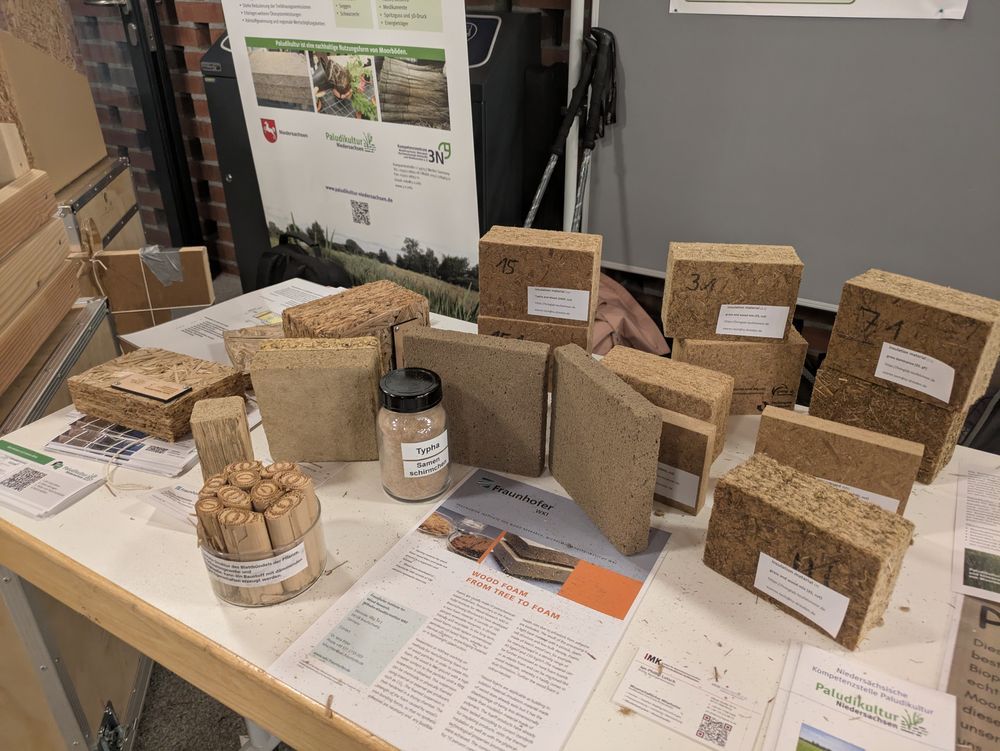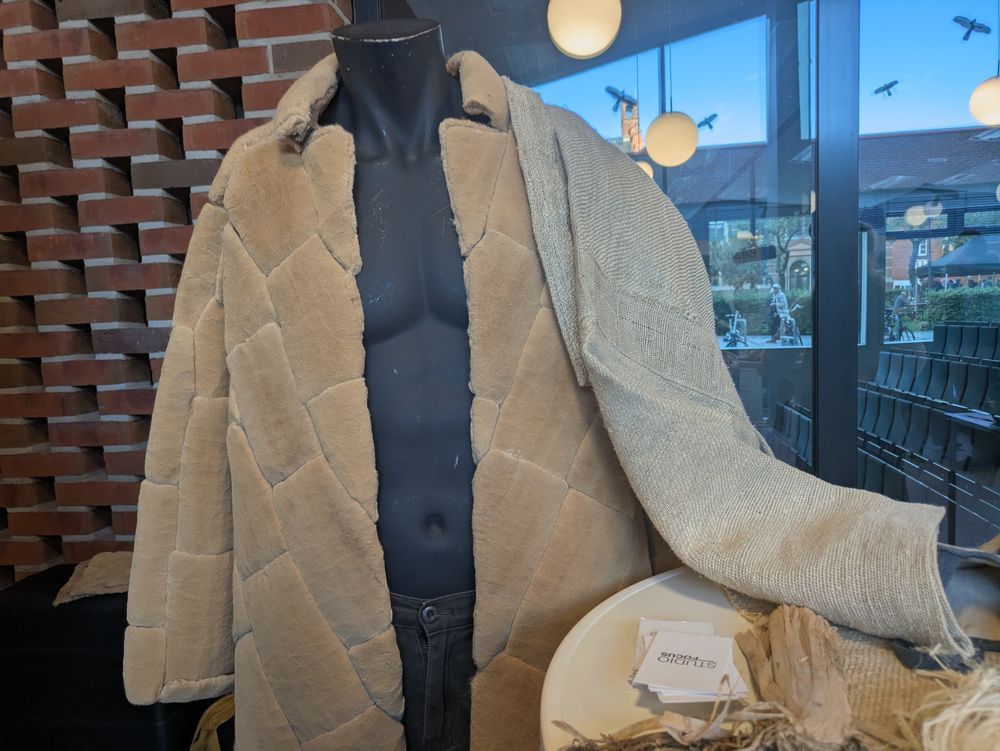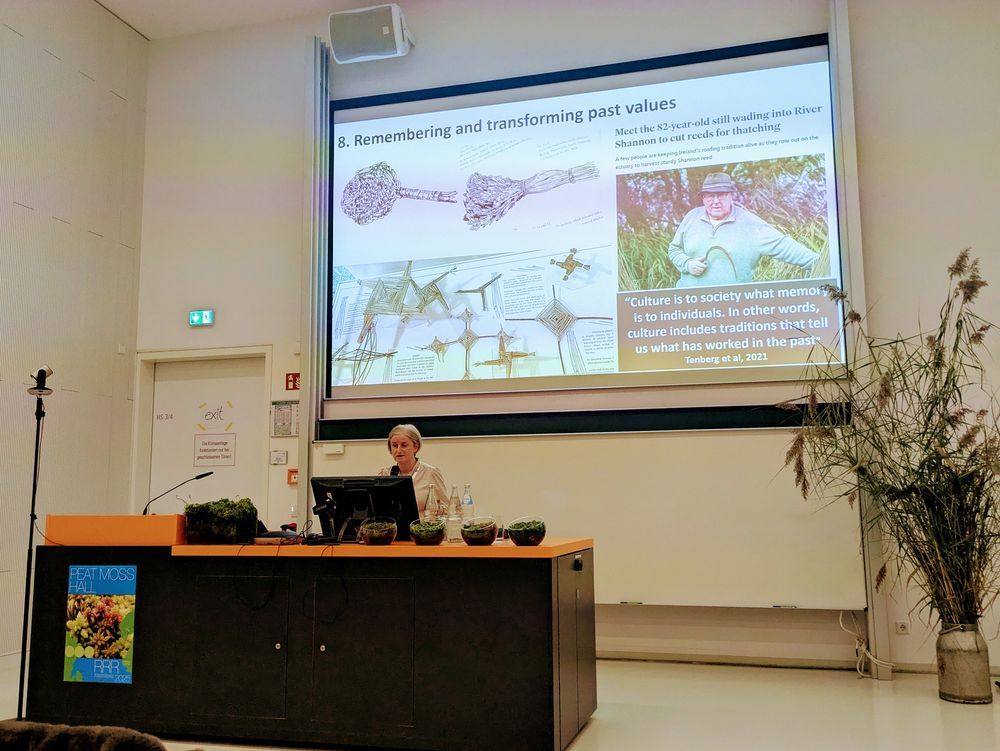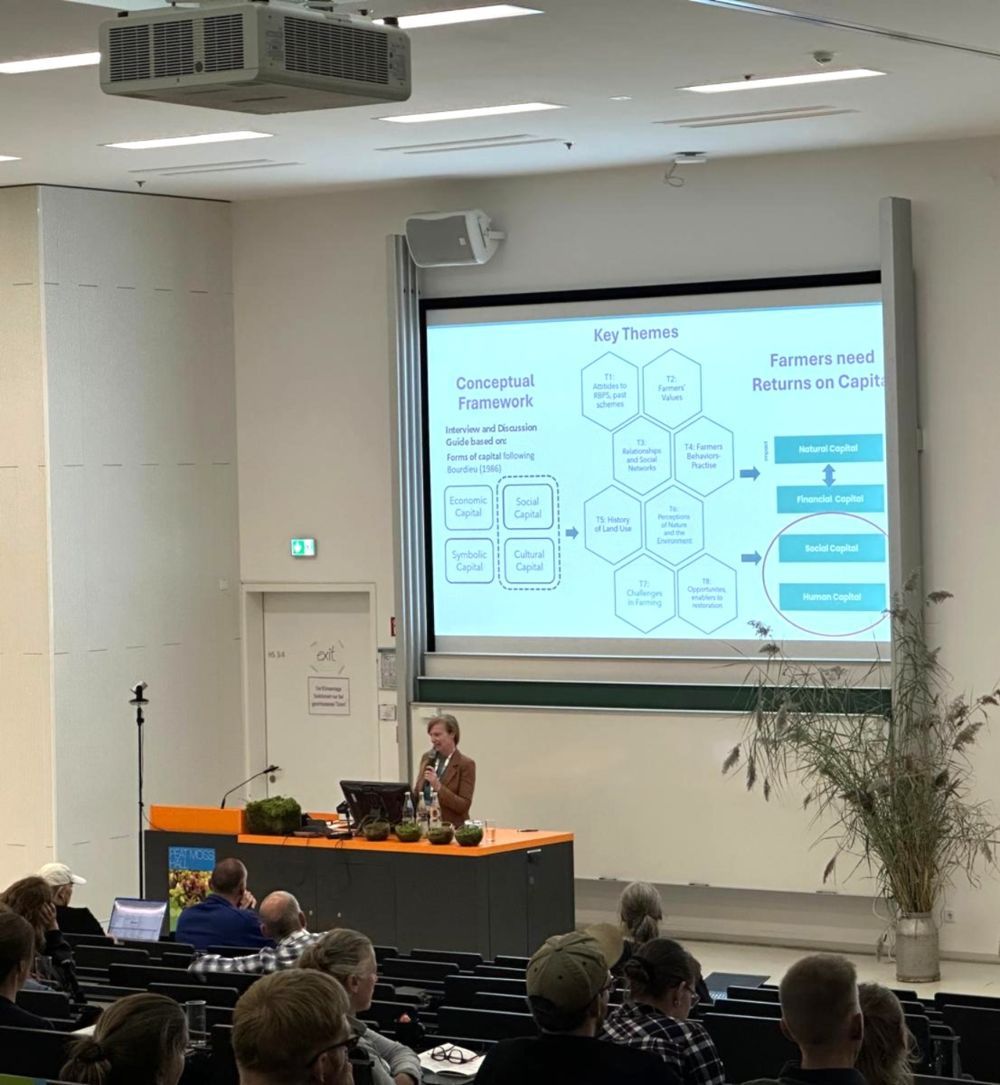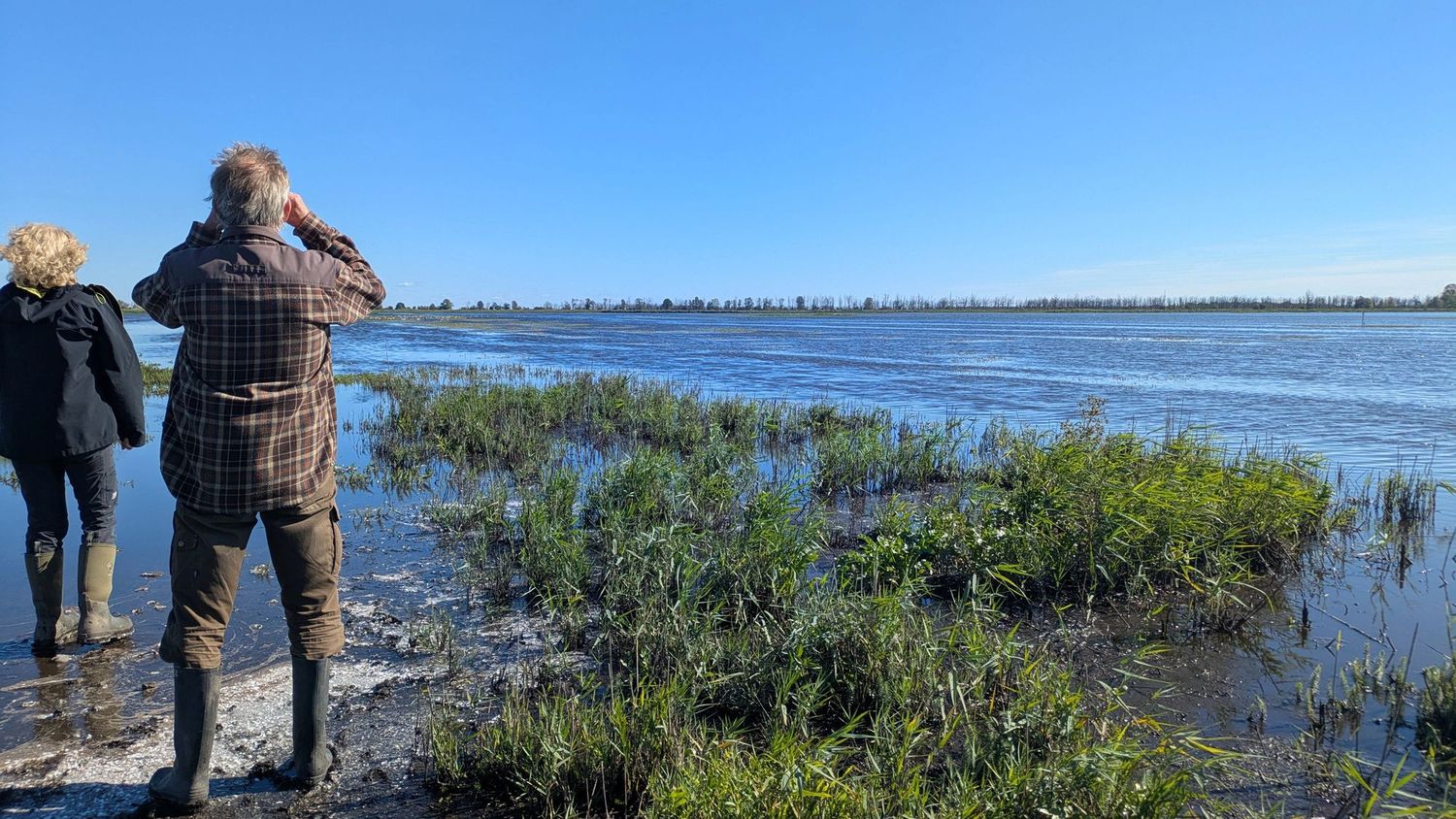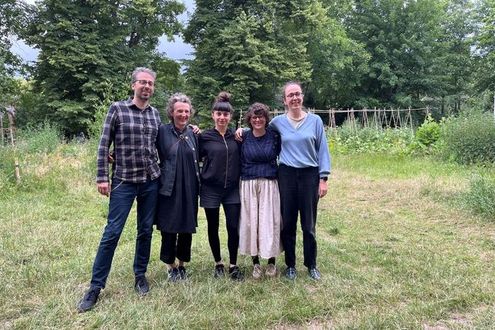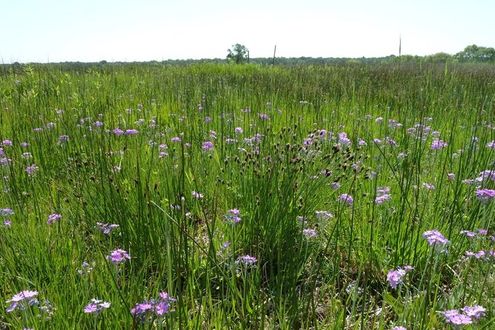Last week, members of the WaterLANDS team attended the RRR2025 (Renewable Resources from Wet and Rewetted Peatlands) Conference in Greifswald, Germany. The three-day event brought together researchers, practitioners, and policymakers from across Europe to share knowledge and discuss innovations in peatland restoration, with a particular focus on paludiculture – the productive use of wet and rewetted peatlands.
Representing WaterLANDS, Kate Flood, Agata Klimkowska, Niall Ó Brolcháin, and Laura Kearney participated in sessions and workshops, sharing insights from ongoing research and restoration projects. Kate Flood delivered a keynote address on “Embedding social-ecological justice for sustainable and equitable peatland transitions”, highlighting the importance of integrating social considerations into ecological restoration efforts.
Laura Kearney presented the results of her Socio-Economic Study at the Cuilcagh-Anierin Uplands SAC in Ireland, conducted in partnership with the LIFE IP Wild Atlantic Nature (WAN) project and the National Parks and Wildlife Service (NPWS). The study explored farmers’ attitudes to the peatland landscape, restoration, and agri-environmental schemes in a region characterised by High Nature Value farming systems. Key findings included:
- Opportunities for sustainable farming: Low-input, extensive upland farming is under pressure from economic, policy, and climate factors. Restoration efforts can align with emerging conservation-focused farming approaches that complement natural ecological transitions.
- Knowledge transfer and communication gaps: While farmers value the landscape, wildlife, and water quality, there is often a disconnect between scientific language and local knowledge. Better communication could highlight ecosystem services and the risks from biodiversity loss and climate change.
- Importance of continuous engagement: Early and ongoing engagement with farmers is essential to design agri-environmental policies that respect traditional practices while supporting restoration. Using social and cultural capital can help identify common ground between conservation goals and local land management.
- Long-term planning and reassurance: Farmers need confidence in the future of their land and livelihoods, including succession planning, alongside restoration schemes that recognise ecological timeframes and ongoing management needs.
The conference also included a half-day field excursion, where attendees, led by Aldert Van Weeren, visited local paludiculture projects. Highlights included demonstrations of innovative typha-based products, showcasing the potential of productive peatland use to support both restoration and local economies.
RRR2025 proved to be an invaluable opportunity for WaterLANDS participants to share expertise, build networks, and explore practical approaches to sustainable peatland management across Europe. The insights gained will directly inform ongoing projects, policy recommendations, and engagement strategies for restoring peatlands while supporting local communities.
Some photos of the event are included below, including some products made from typha!
